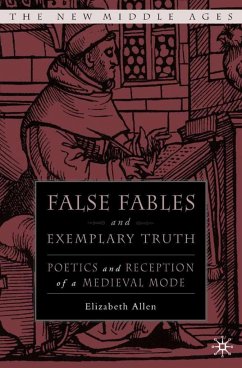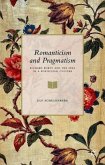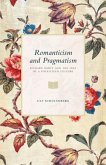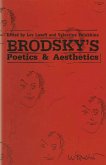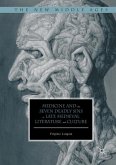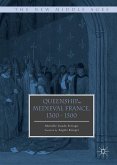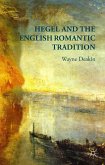This study charts relationships between moral claims and audience response in medieval exemplary works by such poets as Chaucer, Gower, Robert Henryson, and several anonymous scribes. In late medieval England, exemplary works make one of the strongest possible claims for the social value of poetic fiction. Studying this debate reveals a set of local literary histories, based on both canonical and non-canonical texts, that complicate received notions of the didactic Middle Ages, the sophisticated Renaissance, and the fallow fifteenth century in between.
Hinweis: Dieser Artikel kann nur an eine deutsche Lieferadresse ausgeliefert werden.
Hinweis: Dieser Artikel kann nur an eine deutsche Lieferadresse ausgeliefert werden.
" Elizabeth Allen makes a compelling case for medieval reading as a dynamic, ethical activity. Arguing that exemplary stories elicited responses that required "ongoing adjustments to the contingencies of political (as well as social and literary) occasion," she deftly analyzes the cultural function of medieval narrative. False Fables and Exemplary Truth is a sophisticated and thoughtful book that refines the subject of late medieval exemplarity in important and insightful ways. It will become required reading for every scholar interested in this crucial subject." - Rebecca Krug, University of Minnesota

